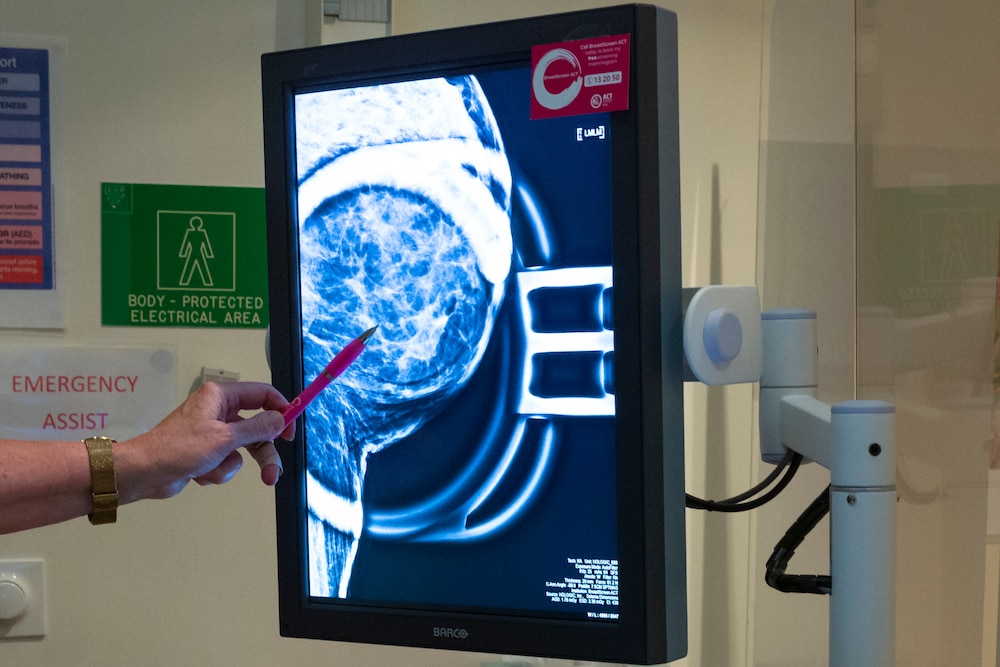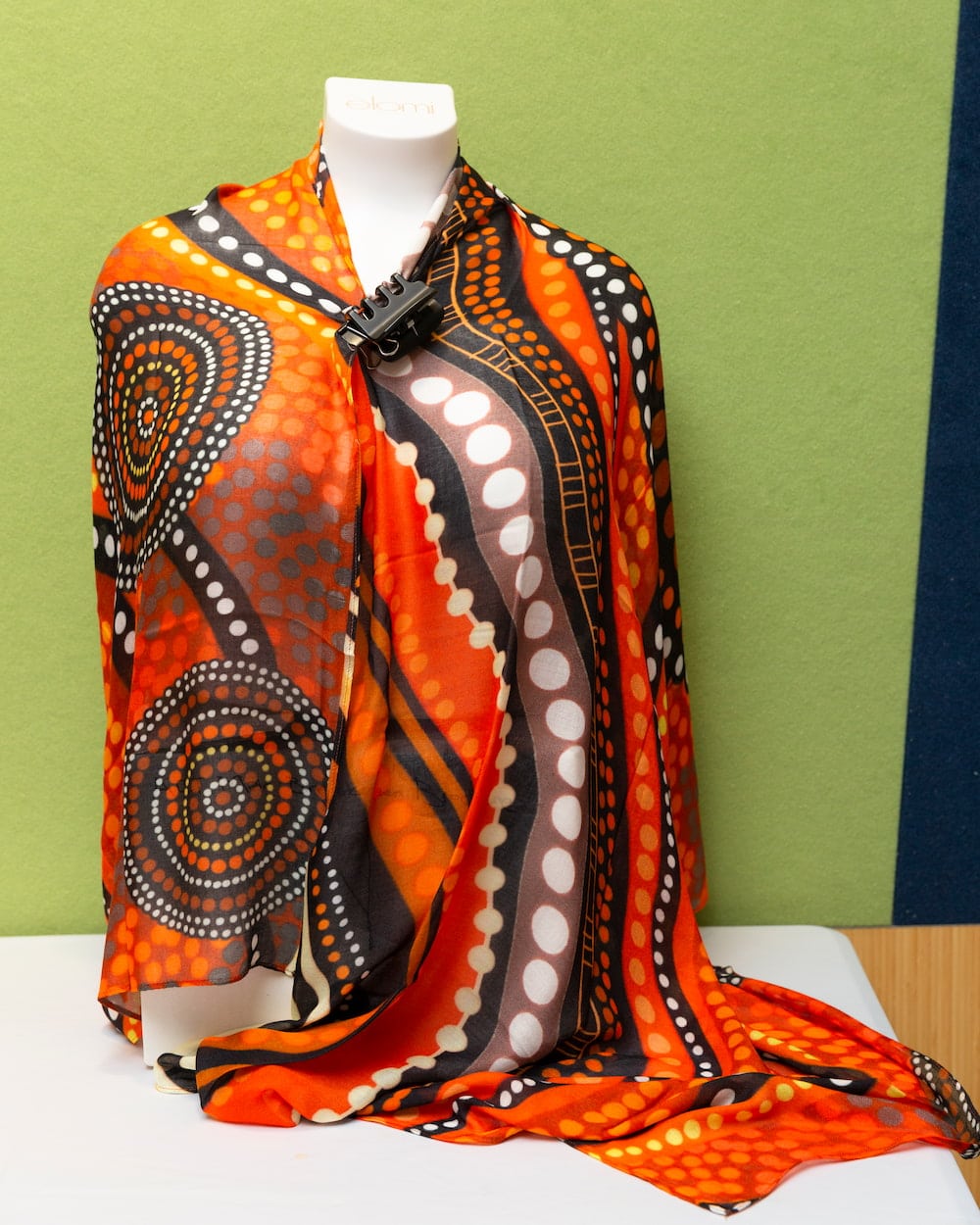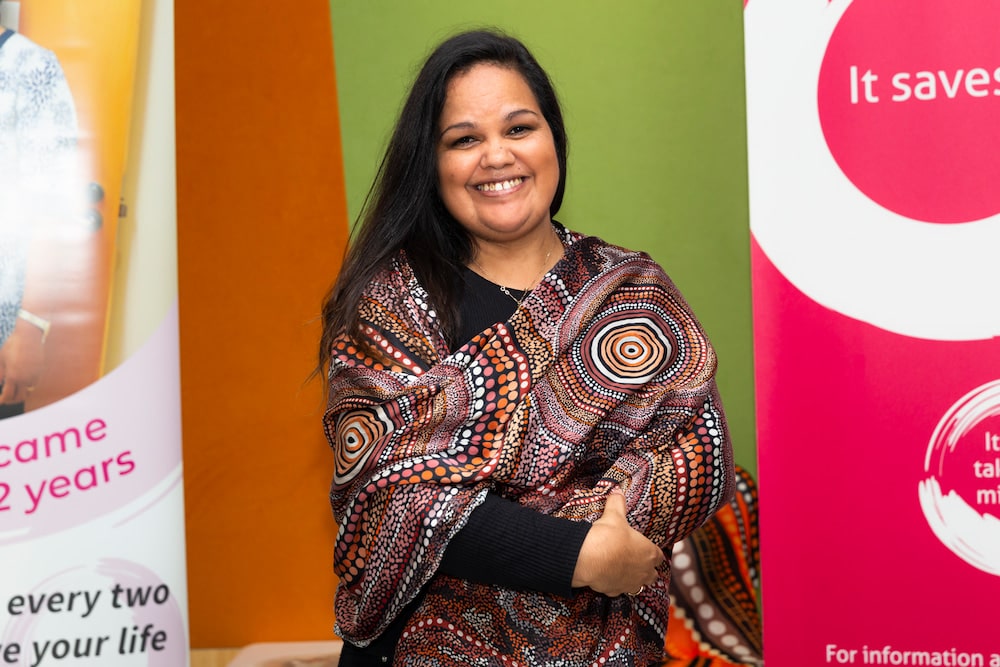Aboriginal women will be able to get checked for breast cancer in style and safety, thanks to colourful, culturally appropriate shawls designed by a local Indigenous artist.
The shawls were launched at BreastScreen ACT today (Friday, 7 May) as a Canberra Health Services initiative to encourage more Aboriginal women to have mammograms.
“Improving the uptake in breast screening gives Aboriginal and Torres Strait Islander women a greater chance of finding cancers earlier,” ACT Health Minister Rachel Stephen-Smith said. “This leads to better health outcomes, and potentially saves lives.”
Breast cancer is the most common cancer Indigenous women suffer, at 1.2 times the rate of other women, but they are less likely to access screening services, Ms Stephen-Smith said.
BreastScreen ACT’s Christy Fox said women should be checked for breast cancer every two years to detect cells (which can be as small as a grain of salt) before they grow.

Last year, only 51% of Canberra’s Indigenous women over 40 were checked for breast cancer through BreastScreen ACT, compared to 57% of the general female population. Nationally, only 38% of Indigenous women aged 50–74 were checked, compared to 54% of non-Indigenous women.
“There is not one Aboriginal family that hasn’t been impacted by breast cancer, and so this initiative is going to save lives,” Caroline Hughes, from the ACT Aboriginal and Torres Strait Islander Elected Body, said. “Women are the nurturers and the givers of life, and we need to encourage our women to be able to come in and get their breast check.”
Artist Kristie Peters, a Wiradjuri woman, dedicated the shawls to the memory of her cousin Tanya, who died from breast cancer in April 2019.
“There is nothing more painful in life when we lose someone so dear. It not only affects our families; it affects our whole Aboriginal community.”

Her striking designs represent women from different nations coming together with an unbroken bond and connection, showing the wisdom, strength, courage, and determination that keeps them culturally strong, Ms Peters explained.
“To create an art piece for people to see is one thing, but to create and design an art piece that can change someone’s life journey is even more special.”
The shawls are entirely made from bamboo; they are soft, eco-friendly, hypo-allergenic, and temperature-controlled, making them suitable for all skin types, Ms Peters said.
“A mammogram can be an uncomfortable and an awkward experience,” said Ms Stephen-Smith. “These shawls create a safe environment so people feel their dignity is supported and protected in a way that also acknowledges their culture and connection to country.”
The ACT shawls were inspired by the Victorian Beautiful Shawls Project for Indigenous women. Following its introduction, 80% of participants had their first breast check or were overdue for a regular check-up, while 82% of women said the shawls made them feel culturally safe.
CALLEO Indigenous funded the shawls through the Canberra Hospital Foundation.
BreastScreen offers free mammograms at Phillip Health Centre, City Health Centre, and Belconnen Community Health Centre. For more information, call 13 20 50, or visit the BreastScreen ACT website.
For more news:



